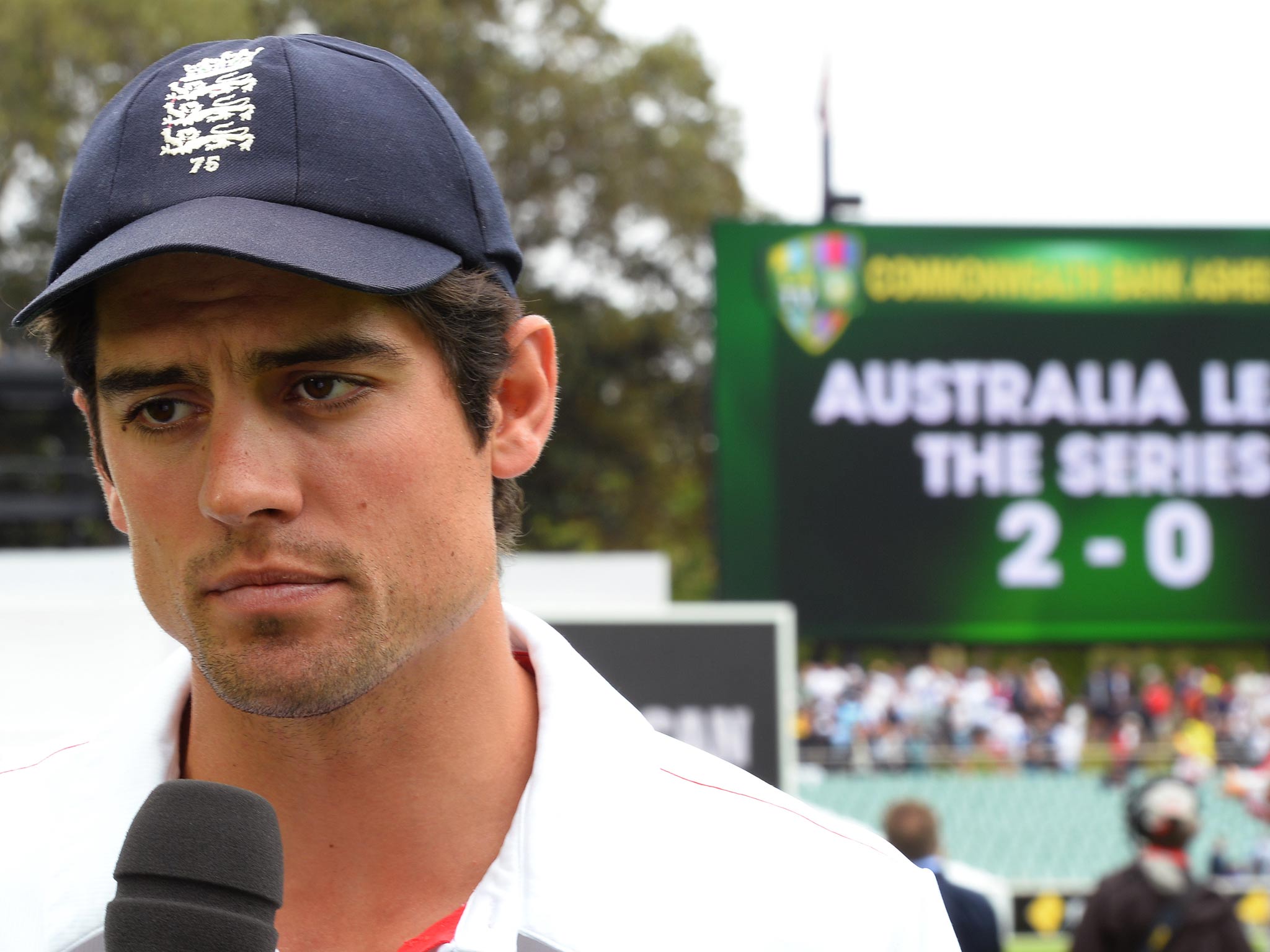Which is worse: major surgery or watching England lose the Ashes?
I believe the problem is the lack of opportunity to play cricket at our state schools

I have always loved Test cricket and been a fanatical follower of Test Match Special. Once I was even fortunate enough to be invited to appear on “The View from The Boundary”, the Saturday lunchtime interview with Jonathan Agnew. The development of HD TV means that viewing the game has never been better. After several years of English Ashes victories I and many England followers could not wait for the start of the series Down Under.
Two days before the series started I went into hospital for major surgery. I wasn’t looking forward to this, but at least during my stay in hospital I had to rest up in bed and was fit only for watching TV post operation. So, for the first time ever, I was under no pressure to be up and out of bed by 0500 hours as I have been virtually all of my working life. Whether it was an early start in the City, catching the first Eurostar to Brussels, or early morning interviews. Ashes fans are easy to spot in the workplace: they are as red-eyed as most people are following the office Christmas party. But here was I, with a week in hospital, and a long recuperation at home, able to follow every ball and very excited by the prospect.
The Brisbane Test started well, as England began to take early wickets and soon had Australia in deep trouble. It made me think that the pre-match hype in the Australian media was no more than a desperate attempt to talk up their chances. But the Aussies ran it strongly and reached a respectable total.
In all sports, psychology plays a huge part and no more so than in Test cricket. Sledging sounds such an innocent word. Some of it is crude and vulgar and often pretty wounding. The Austalian team, from the captain Michael Clarke down, set out to intimidate us. And then there was Mitchell Johnson: a fearsome former van driver with a drooping moustache who exuded aggression and venom from the opening delivery. His left arm over bowling, which is not that common in Test cricket, generated speeds well over 90mph. The English batsmen were left floundering and completely outgunned.
It wasn’t quite a re-run of Douglas Jardine’s infamous bodyline tactics of 80 years ago but it wasn’t too far off. It did remind me of the 1970s when Dennis Lillee and Jeff Thomson terrified the England side. The captain at the time, the late and charming Mike Denness, would take two steps to the leg side when he faced each delivery. This was because he was frightened of being physically hurt. In Brisbane, Johnson not only terrified the batsmen, but psyched them out and looked like a conquering warrior. Within a couple of days we had lost the game.
On the last winter tour, England went 1-0 down to India in the first match but managed to turn the series around and win: a terrific victory. But I was in no doubt from my hospital bed that we were done for, and that there was no chance of repeating last year’s recovery. Indeed, one of our batsmen, the unfortunate Jonathan Trott, had to return home. He is not the first cricketer to suffer from depression, it is a very tough game.
After yet another late night I can see we are on the verge of going 3-0 down. It would take a brave man to predict that it won’t finish 5-0. England look utterly demoralised and beaten, and those of us who have stayed up for the long nights are feeling pretty depressed.
So I have been wondering, as the misery unfolded, what has gone wrong? The captain Alastair Cook is a superb Test cricketer. I have had the pleasure of meeting him and was left with the impression that he is a true gentleman. But I rather doubt whether he is a tough enough leader to take on an Australian side who now behave as they did in the 1970s.
And where are we to find our Mitchell Johnsons? Well, there is no doubt Stuart Broad has bowled very well, got some good bounce and taken wickets. He is a tough lad who isn’t bothered by the sledging and the baying of the crowd. And in English conditions, Jimmy Anderson is truly world class. But we are not producing working-class lads who bowl fast and put the fear of god into the opposition like Freddie Trueman.
I firmly believe that lack of opportunity to play cricket in many of our state schools is at the heart of this problem. Our Test team, like so many sectors of our public life, are increasingly a reflection of the private education system. Efforts have been made by people, including Sir John Major, to get more cricket played, but still tens of thousands of boys a year just do not get the opportunity. How are we to build a world-beating team when we do not even attempt to ensure we have a plethora of talent to choose from?
I was asked by James Forsyth of The Spectator last year just how good I thought England was. I said that whilst I was delighted that we had enjoyed some time in the number one slot, I was still not wholly convinced. This series has shown that despite the impressive batting averages of our top order batsmen, under extreme pressure they are not up to the job. After this series we are going to have to go back to the drawing board.
I am still on strong painkillers after the operation. If it hadn’t been for them, the agony of the Ashes would have been even more unbearable.

Join our commenting forum
Join thought-provoking conversations, follow other Independent readers and see their replies